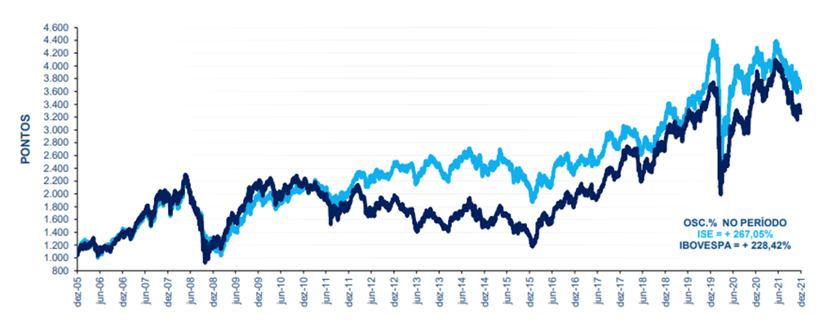Never before have companies been under such a strong pressure to engage in sustainable business practices, which is illustrated by the growing global interest in “ESG”, an acronym that translates the three main pillars of sustainability in the corporate universe: environment, social and governance. Dating back to the mid-2000s, ESG has gained prominence mainly in more advanced economies, such as the United States and the European Union, which have implemented various regulatory and legal frameworks to ensure that goods and services circulating in their markets adhere to the latest standards of corporate sustainability.
Recent rise in regulatory and legal responses
In contrast, Latin America, in general, and Brazil, specifically, have been laggards in the process of adopting and implementing binding rules on sustainability. Recently, legal initiatives have emerged that aim to remedy this slow response, such as federal bill 577/22, currently under review in the Brazilian lower house, which would create a national framework on human rights and businesses. Proposed in the wake of environmental disasters that hit Brazil during the last decade, such as the incidents with the Brumadinho and Mariana dams, the bill would force companies to maintain a tighter control over their supply chains in order to curb cases of modern slavery, as well as provide protection and support to individuals whose rights have been violated. Moreover, in the regulatory sphere, Resolution 59 of the Comissão de Valores Mobiliários (CVM), Brazil’s security and exchange commission, issued in December 2021, will require companies listed in Brazil to indicate ESG-related data in their reference forms, a mandatory document made available by listed companies to the market and which aims to provide shareholders with an overview of a company's activities. With this change, CVM reinforces the need for companies listed on Brazilian stock exchanges to increase their transparency regarding ESG efforts. In general, however, advances in ESG by public authorities in Brazil are still incipient.
Voluntary adoption of ESG initiatives
The lack of regulatory impetus, however, does not mean that the Brazilian market has remained static to ESG developments. On the contrary, what we have seen is a growing interest in the voluntary adoption of ESG initiatives by companies and self-regulated sectors. Illustrative of this proactive performance by companies, the number of Brazilian firms enrolled in the UN Global Compact, a multilateral initiative through which companies commit to implement improvements relative to human rights, labour, environment and anti-corruption and communicate their actions through annual reports, rose from 436 in 2015 to 1,789 in November 2022. Furthermore, a survey carried out by Deloitte and the research institute IBRI (Brazilian Institute for Investor Relations) showed that 33% of the companies surveyed link ESG indicators to their executives' remuneration and that at least 37% of these companies have an ESG specialist in their investor relations department. The same study also revealed that 68% of its respondents stated that leadership in ESG issues presents the single greatest opportunity for companies in Brazil in 2022.
Catching up with global ESG standards
In addition to the inevitable growth of ESG rules in Brazil, domestic companies have also been paying attention to the fact that ESG issues will become essential in their business relationships with the world's largest markets, as ESG rules being adopted worldwide are not limited by national borders, requiring all companies with a transnational presence to implement responsible social, environmental and governance practices throughout their value creation process. For example, the German Supply Chain Act, which will come into force in January 2023, will force German companies to implement a series of compliance and risk management standards globally, in addition to demonstrating that there is full respect for human rights throughout their production chain, which also includes their overseas suppliers. In this context, it is essential to implement internal control policies and contract due diligence services focused on ESG issues, in order to ensure that Brazilian companies remain integrated to the global value chains and aligned to international best practices.
Financial benefits of ESG
Another incentive for the acceleration of ESG initiatives in Brazil is the proliferation of investment funds dedicated exclusively to fostering ESG practices ('ESG funds'). Globally, according to Refinitiv Lipper, around USD 649 billion were invested in ESG funds in the first 11 months of 2021. Furthermore, it states that more than 10% of the world's financial assets are under the aegis of ESG funds. In Brazil, only 23 out of 27,893 investment funds in the country have received the ESG fund seal from Anbima (The Brazilian Association of Financial and Capital Market Entities), the financial system's self-regulatory association, demonstrating that there is still great growth potential for this type of fund in Brazil. Finally, it is necessary to highlight that the market valuation of companies that adopt sustainable practices has outperformed the market average. According to B3, Brazil’s main stock exchange, the market value of companies included in its Corporate Sustainability Index has increase on average by 267.05% since 2005, while Ibovespa, B3's main index, increase by 228.42% in the same period.
Figure 1: Historical valuation of the ISE and IBOVESPA indexes between December 2005 and December 2021.

Source: Boletim ISE.
In this scenario, companies that are more proactive in implementing responsible business practices will be better positioned to adapt to global business standards, avoid becoming disconnected from global value chains and be able to attract investments that require the ESG seal. Now is the time for Brazilian businesses to capitalise on ESG, to act ahead of the legal and regulatory wave that is coming and grasp the opportunities that are already presenting themselves. To do that, promptly implementing the latest global best practices and performing a thorough due diligence of supply chains and business partners will provide proactive companies with a competitive advantage over the rest of the market and prevent unnecessary future cost for when more stringent corporate responsibility rules become binding.
To discuss this article or other industry developments, please reach out to one of our experts
|
|
Mariana Rondon
|

|
Darlí Magioni
|


